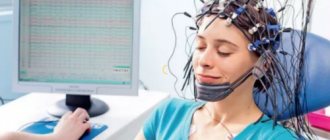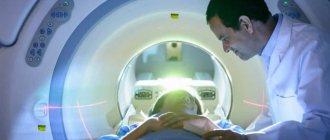A person suffering from epilepsy will not be able to get a job in some professions, since there are special legal restrictions for epileptics. During an attack, a person with this disease can harm himself or other people, so epileptics should not work as a surgeon, driver, pilot, builder, and so on.
People suffering from epilepsy especially need work that would bring them moral satisfaction. This is how a person feels needed by society and pays less attention to the manifestations of his disease. Since such people have a somewhat reduced ability to work, not all professions are suitable for them. Before getting a job, any citizen undergoes a medical examination to determine the suitability of their health status. If any controversial situations arise, all issues will be resolved by a special clinical expert commission.
Persons with epilepsy should not operate moving machinery, drive vehicles, or work in a mine, at heights, or in water. In all of the above cases, when an epileptic seizure occurs, a dangerous situation can arise. Despite this, there are still many professions suitable for people with epilepsy.
Of course, when choosing a profession, in addition to illness, one must take into account a person’s individual inclinations, desires and aspirations. Experts count about a thousand professions suitable for people with epilepsy. Some of them can be called: auto mechanic or auto technician, agronomist or gardener, librarian and bibliographer, accountant, tailor, photographer, artist, biologist.
People with epilepsy usually perform the work entrusted to them conscientiously, although somewhat slower than healthy people. They are characterized by accuracy and hard work. Therefore, it is worth choosing professions that require scrupulousness and precision, but do not require urgent, quick execution.
Fact: Many people with epilepsy are highly skilled workers in various fields and industries!
Prohibited professions
Work that people with epilepsy should not do:
- absolutely any work that takes place at height;
- maintenance of lifting structures;
- maintenance of electrical installations with voltages of one hundred and twenty-seven volts and above;
- profession related to animal husbandry;
- maintenance of hostels and hotels;
- work in which various machines are used (lathes, milling and others);
- drivers of various vehicles;
- construction industry;
- plumbing;
- printing production;
- trade;
- cooking;
- connection;
- healthcare;
- mechanical engineering;
- energy;
- metallurgy;
- hairdresser;
- watchmaker;
- wood processor;
- florist;
- jeweler;
- engraver;
- product technology;
- chemical technologies;
- some specialties of education;
- cook;
- miner;
- geologist;
- art.
The list of prohibited work does not end here, but it is worth understanding that everything depends on the individual case and the degree of the disease. For a more accurate understanding, a person needs to undergo a thorough medical examination and consult with a potential employer.
It should be noted that seizures are quite dangerous, since during them a person can cause harm both to himself and to people nearby. A patient with epilepsy must be aware that there may be danger and impose special restrictions on themselves. If attacks occur rarely, then there are practically no restrictions. Restrictions include: altitude and water controls. For example, water treatments are best taken in a sitting position.
There is one extremely unpleasant moment. If attacks of the disease are constant, then the range of possible professions is significantly narrowed. Work that involves frequent contact with people is immediately excluded. An epileptic who suffers from fairly frequent seizures and intellectual degradation belongs to the second group of disabilities.
Many people mistakenly assume that sedentary office work will be safe for epileptics, but this is not the case. Office is stress, emotional distress, tension and everything that can later lead to an epileptic attack.
Epileptics receiving refusals from employers often despair and give up all attempts to find a normal, well-paid job.
In order to find a good profession, you first need to clearly complete the following three steps:
- Make a correct, clear diagnosis in a medical institution and carry out effective treatment. This stage is fundamental and most important, since you need to really accept your illness and begin to take steps towards recovery.
- It is necessary to understand as accurately as possible all the responsibility for yourself and especially for other people. It is advisable to listen to the recommendations of your doctor regarding this issue.
- Maintaining a correct lifestyle and a correct daily routine.
What does an employer need to know?
People with epilepsy often face discrimination when hiring. Even if the profession is not on the list of “prohibited”, the employer may refuse. Unfortunately, many managers are poorly informed about epilepsy and are biased towards such people; they do not want to “take another risk.” Such “reinsurance” does not lead to anything good. Having been refused in one place, the next time a person will begin to hide his illness, and it is unknown what consequences this will lead to.
It is important for employers to know about some points:
- In most cases, proper treatment can keep the disease under control.
- Modern antiepileptic drugs have virtually no effect on a person’s ability to cope with work. Minor treatment restrictions arise only in isolated cases.
- Epilepsy does not affect the skill level in any way. Many patients have high intelligence and can perform complex work and occupy leadership positions.
- According to statistics, with proper treatment and regular monitoring by a doctor, people with epilepsy get sick and miss work no more often than healthy people.
- Such people most often do not need any special conditions or special support. They can work just like everyone else. Naturally, with the right choice of profession.
It must be remembered that both the employer and employees are responsible for safety in the workplace. Violation of the law may result in accidents and serious claims from government agencies. Therefore, before hiring, it is important to undergo a preliminary medical examination and provide reliable information about your disease. Routine medical examinations will help monitor the health of workers, identify new diseases and the worsening of existing ones at an early stage. This will help the employer make the right decision in a timely manner and find compromises with an employee who, due to health reasons, can no longer hold his previous position.
You can use the services of doctors and undergo a medical examination at the ProfMedLab clinic. Contact us: +7 (495) 120-08-07
Need more interesting articles:
The most harmful professions 06/22/2017
Permitted professions
Where can an epileptic work and still receive a stable and good salary? In fact, there are a huge number of options:
- programmer;
- telecommunications operator;
- tailor;
- fashion designer;
- computer operator;
- artist;
- accountant;
- testing of semiconductor structures;
- postal service;
- modeling and design of clothing;
- poultry farming and beekeeping;
- controller of the finished product.
In addition, patients with epilepsy can engage in freelancing. If a person has certain special abilities, then he can easily create websites, draw logos, write commercial texts and much, much more that can be found on various freelance exchanges. It is worth understanding that for some epileptics, the flickering of a computer monitor and TV can cause an attack, so you should first consult with your doctor.
Fact: frequent seizures of epilepsy largely limit the patient’s ability to work.
How to choose the right profession?
First of all, you need to accept your diagnosis and stop focusing on it. If you don’t have a normal job, don’t blame epilepsy. In most cases, despite the illness, there are still many opportunities.
Artist, accountant, tailor, fashion designer, designer, programmer, manager, marketer - this is just a short list of professions that epilepsy will not interfere with. If it’s difficult to decide on your own, you can consult your doctor or visit a career guidance center.
Modern technologies provide an interesting new opportunity for people suffering from epilepsy and other diseases. You can start freelancing from home and even start your own online business. Now there is even the possibility of remote official employment.
Therapeutic effect of labor
Today, more than half of people with epilepsy work. Thanks to modern treatment methods, most patients achieve stable compensation. In addition, work and social activities reinforce the therapeutic effect. A person who is engaged in an interesting activity develops new dominants in the brain. These are positive foci of excitation that suppress the effects of pathological ones. Experts note that those patients who work have seizures during periods of wakefulness much less frequently than those who are unemployed.
In addition, at work or school, people with epilepsy prefer to look up to healthy people and adhere to their lifestyle. Thanks to this, manifestations of the disease such as severe irritability, excitability, and selfish tendencies are smoothed out. In return, endurance, the ability to overcome troubles, and self-control are developed.
Epilepsy is a disease that creates many problems in the implementation of the patient’s social rights. The level of literacy of the doctor and the patient’s relatives (representatives) in this matter can either make the life of a patient with suspected epilepsy easier or significantly complicate it for many years.
Despite the existing regulations that clearly regulate the admission of patients with epilepsy and epileptic syndrome to various types of work and driving vehicles, many questions remain on this topic. First of all, the doctor must take into account that citizens with long-term remission (drug or non-drug) are subject to the same legal restrictions as people with epilepsy outside of remission. Therefore, diagnostic accuracy is important when initially presenting with epilepsy-like symptoms.
Especially in pediatric practice, there must be a correct understanding of the consequences of the diagnoses and their impact on the patient’s adult life. It is necessary to be extremely careful in formalizing the diagnosis (“epileptic syndrome”, “febrile convulsions”, “first-time convulsive attack”). Often the diagnosis is established formally, according to parents and witnesses, does not lead to treatment, but has enormous consequences in the patient’s adult life.
Patients and their parents are often misled (probably due to ignorance of legal norms), convinced that after a certain time (usually a period of five years) the diagnosis will be removed. But who will remove the diagnosis, and on what basis? The current legislation of the Russian Federation does not regulate the procedure for removing the diagnosis of epilepsy; this diagnosis remains with the person for life.
Fundamentally important issues with epilepsy are its impact on employment, education, military service, the ability to drive a car, etc. The right to work is one of the basic human rights, which plays an important role in life. The fundamental rights and freedoms enshrined in the Constitution of the Russian Federation are the most important and inalienable. They belong to every citizen, are the same and equal for everyone.
In practice, these provisions are not always implemented. First of all, labor law provisions provide for restrictions related to harmful and dangerous working conditions. According to subparagraph 2 of paragraph 3 of Appendix 3 to the order of the Ministry of Health and Social Development of the Russian Federation dated April 12, 2011 No. 302-(hereinafter referred to as order No. 302), periodic medical examinations are carried out in order to identify diseases that are medical contraindications for continuing work associated with exposure to harmful / hazardous production factors. According to paragraph 31 of the same order, at the end of the periodic examination, the medical organization issues a medical report.
The list of works for which mandatory preliminary and periodic medical examinations (examinations) of workers are carried out includes a significant number of professions and fields of activity: military service, emergency rescue work, civil aviation, driving vehicles, oil and gas sector, geological exploration, work at height , maintenance of electrical installations, many specialties in medicine, education, food industry, railways, etc.
In clause 48 of section IV of order No. 302-n “The procedure for conducting mandatory preliminary and periodic medical examinations of workers engaged in heavy work and work with harmful/dangerous working conditions,” approved by the same order, it is stated that workers are not allowed to perform work with harmful/dangerous working conditions, as well as work during which it is necessary to conduct preliminary and periodic medical examinations or examinations (that is, for all of the above types of work), in order to protect public health, prevent the occurrence and spread of diseases, if there is legislation established general medical contraindications, which include diseases accompanied by disorders of consciousness: epilepsy and epileptic syndromes of various etiologies, syncope (with loss of consciousness) syndromes of various etiologies.
At the same time, the document does not indicate that epilepsy ceases to be a medical contraindication to performing work with harmful/dangerous working conditions after the cessation of dispensary observation due to persistent long-term remission (recovery). On the one hand, this can be seen as the concern of legislators about the health and well-being of citizens with epilepsy, but in practice this means a lifelong ban on many professions, regardless of the actual state of health, the duration of remission while taking medications or without them. Similar contraindications exist for other jobs, for example, a diagnosis of epilepsy prevents entry into state or municipal service, service in the bodies and institutions of the prosecutor's office of the Russian Federation, appointment to the position of a judge, is a contraindication for work using information constituting state secrets, for service in bodies internal affairs and internal troops, in the federal migration service, the federal fire service of the Ministry of Emergency Situations.
One of the consequences of a diagnosis of epilepsy is a ban on driving. According to paragraph 1 of Art. 23 Federal Law “On Road Traffic Safety” dated December 10, 1995 No. 196-FZ, medical examination of candidates for vehicle drivers is mandatory. Receipt, replacement and restoration of rights are carried out only with a medical certificate of form 083/у-89. The certificate is issued after passing a medical examination at a licensed medical institution.
The presence of documented epilepsy is a medical contraindication to driving. According to paragraph 1 of Art. 23.1 of the Law “On Road Safety”, medical contraindications to driving are diseases (conditions), the presence of which prevents the ability to drive a vehicle. The “List of medical contraindications to driving a vehicle,” approved by Decree of the Government of the Russian Federation of December 29, 2014 No. 1604, states that epilepsy is a disease of the nervous system that is a contraindication to driving a vehicle. However, this List does not contain any indication that epilepsy ceases to be a medical contraindication to driving even after the cessation of dispensary observation due to persistent remission (recovery).
Conclusions:
- In labor relations, citizens with long-term remission (medical or non-medicinal) are subject to the same legal restrictions as those outside remission. Today, an employer may fire or not hire an employee who has been diagnosed with epilepsy or syncope due to inadequacy for the position held. At the same time, contraindications to work with a diagnosis of epilepsy, according to the list of general medical contraindications to admission to work with harmful/hazardous production factors, as well as to work for which preliminary and periodic medical examinations of workers are required, remain for life not only for patients with epilepsy and epileptic syndromes of various etiologies, but also with syncopal syndromes of various causes.
- The restriction on driving a vehicle remains for life, regardless of the duration of the attacks, their number and cause, or the duration of remission due to drug therapy or without it.
The article was published in the journal Hippocrates id56.ru
- November 22, 2018
Exacerbation of the disease
Epilepsy is a disease that can cause exacerbations. Then the seizures become more frequent or severe. In such cases, it is better for patients to temporarily change their job to an easier one, or go on vacation. An exacerbation of the disease is not a reason to remove a person from work if it is not contraindicated for epilepsy. People around you should pay attention to a person suffering from this disease. His future condition depends on how employees and relatives perceive what is happening to a person.
Alpha Rhythm
The wide prevalence of epilepsy among the population, the absence of visible differences in the interictal period from the rest of the population, as well as the successes achieved in the treatment of the disease, determine the significance of those social factors that limit the possibilities of social adaptation of patients with epilepsy. A diagnosis of epilepsy is always stressful for the patient, which is aggravated by parallel problems in social life. At the same time, maximum adaptation and social support, minimizing truly necessary restrictions are the most important therapeutic factors.
In the United States and developed European countries, accepted legal norms strive to maximize the rights and opportunities of persons with epilepsy in relation to education, employment and social activity, taking into account the individual situation of each patient under strict medical supervision of an epileptologist . Laws prohibiting social stigmatization of people with epilepsy were adopted in the USA in 1990, in the UK and Australia in 1992. Employment issues are strictly regulated only for military service, fire protection, urban transport, merchant marine and driving. In all other areas of activity, issues of professional suitability are resolved strictly individually in accordance with the nature of the work and the state of health of the person concerned. The protection of the rights of patients with epilepsy is carried out by the International Bureau for Epilepsy, which has national offices in all European countries. This public organization provides assistance to patients with epilepsy in finding a job and resolving labor conflicts related to illegal dismissal or refusal to hire.
The rights of patients with epilepsy in Russia are determined by existing legal acts, as well as numerous departmental instructions, the motivations of which are often based on outdated standards and, as a rule, are not available to the public. Only employment issues for military service, fire protection, urban transport, navy, and driving are clearly regulated.
Car driving.
In Russia, as in Poland and Japan, persons who have ever been diagnosed with epilepsy are forever deprived of the right to drive. In more liberal countries, the ability to drive is determined by the current absence of seizures and mental disorders. The duration of the period from the last attack that allows the patient to raise the question of obtaining a driving license is 3 months in the USA, and according to the recommendations of the International Bureau of Epilepsy - 2 years. It does not matter whether the absence of seizures is due to the use of antiepileptic drugs or not. It should be noted that 3 months is the minimum attack-free period; it may increase or decrease depending on clinical factors. Favorable criteria for reducing the seizure-free period are situation-related seizures, simple partial seizures without loss of consciousness or motor control, and nocturnal seizures only. Unfavorable problems include inadequate use of anticonvulsants, poor communication with a doctor, frequent seizures, structural or metabolic brain damage, alcohol or drug dependence, and traffic accidents within the last 5 years. According to the laws of the United States and most European countries, the doctor does not have to provide information about the patient to the highway department, but must inform the patient about the risks associated with driving a car; The patient’s outpatient record must contain a record that the patient has been given appropriate recommendations.
Military service.
In Russia, the requirements for the health of conscripts are regulated by the Regulations on Military Medical Examination; epilepsy falls under Article 22 of the “Schedule of Diseases”. According to paragraph “a” of this article, in the presence of frequent epileptic seizures (3 or more per year) or severe mental disorders, a citizen is considered unfit for military service (fitness category “D”) and is removed from the military register. According to paragraph “b” of this article, in case of single and rare seizures (convulsive and non-convulsive) without mental disorders outside the seizure, citizens undergoing military service upon conscription are limitedly fit for military service (fitness category “B”), that is, not fit for military service service in peacetime. Those undergoing or entering military service under a contract are recognized as fit with minor restrictions (fit category “B”), or the decision on fitness for military service is made individually. Persons who have had seizures in the past, if there have been no seizures for 5 years, but if there is pathological activity in the EEG, are qualified under point “b”.
Limitations in choosing a profession
In Russia, having a diagnosis of epilepsy at any period of life is an obstacle to flight work in civil aviation, the merchant navy, professions related to driving vehicles, as well as for all types of work in which the occurrence of seizures poses a threat to the patient’s life or may lead to serious accident, loss of life, damage. The presence of seizures is considered to be cases when, in the absence of clinical signs, undoubted patterns of an epileptic seizure , even if there are no visible clinical manifestations.
Epilepsy is also a contraindication for working as a doctor or nurse directly involved in treating patients, as a teacher, or as an artist. All the restrictions listed above also apply to persons entering the relevant state educational institutions.
In accordance with the recommendations of the IPEL, a number of developed countries have more differentiated restrictions for some professions. In the UK, people with a history of seizures are not accepted into the merchant navy, but a seafarer who develops seizures is entitled to continue working on a ship in a profession other than the safety of the ship and passengers if he has been seizure-free for 2 years. Restrictions for working as a doctor only arise if the attacks are not sufficiently controlled with medications. strict restrictions on the very fact of epilepsy . To hold a teaching position, a candidate must be seizure-free for 3 years. In general, in the UK, in areas of activity outside the military, merchant marine, aviation, submarine, fire service, police and public transport, where there are strictly defined standards, the decision on professional suitability is made on an individual basis. In the event of an unreasonable refusal to hire due to employer bias, support for persons with epilepsy is provided by the national voluntary agencies of the International Bureau of Epilepsy.
Work at home
If the health condition does not allow a person with epilepsy to work in production, simple work can be done at home. Work as a knitter, embroiderer, or computer typing operator is suitable for epileptics.
In addition, you should not remove the patient from home work. He is quite capable of buying groceries, washing dishes, preparing dinner, and cleaning. The exception is during periods of exacerbation, when seizures occur suddenly and are often repeated. At such times, people with epilepsy should not cook food, iron clothes (due to the risk of burns), or wash windows (to avoid falling). In short, you should not leave patients with epilepsy alone near turned on electrical appliances or a gas stove during periods of exacerbation of the disease.
Epilepsy in children
According to Marina Dorofeeva, a neurologist-epileptologist at the Research Institute of Pediatrics named after. Pirogov, epilepsy, which is a consequence of birth injuries, is the most severe. If the diagnosis is made in the first or second year of life, these children will most likely experience developmental delays. All children need to be socialized, and children with epilepsy are most often not accepted into kindergartens and schools, including specialized ones. As a result, the whole life of the family breaks down: the mother is forced to not work and stay at home with the child, the father often cannot withstand the stress and leaves the family. The family's quality of life plummets.
In fact, most people with epilepsy can live a normal life if they only need to take anti-seizure medications regularly. You can engage in most professions, different sports, even snowboarding and diving, as long as you have a reliable friend nearby. Only contact wrestling and mountaineering are prohibited.
The main thing is that people do not invent boundaries for themselves that do not actually exist. But, unfortunately, about a third of patients with epilepsy suffer from depression to varying degrees, and this is largely the fault of society, which is full of stereotypes regarding their diagnosis.
Tips for choosing a profession
Some tips for people who suffer from epilepsy and want to get a job:
- The best option is a job that has a shift schedule. Why? The fact is that such a work routine, firstly, helps to maintain adequate sleep, and, secondly, allows you to regularly and on time take medications prescribed by your doctor.
- When searching, you should not focus on your illness. Epilepsy is not a death sentence.
- When communicating with an employer, you must describe your illness as clearly as possible, especially its degree.
In conclusion, I would like to say that epilepsy is not an obstacle to finding a job or getting an education. A person with epilepsy, like other people, can choose the right profession to their liking and begin to develop qualitatively in it.
What is important for a job applicant with epilepsy to know?
If you are just looking for your first job, when analyzing vacancies, pay attention to the required qualifications and compare them with your skills. In addition, companies mark some of their vacancies that are suitable for people with disabilities with special signs, which simplifies the job search. If you have a disability, look for these special signs on job search resources. On your first day of work, pay attention to the safety around you. If you are sensitive to light, try to remove irritating signals from your field of vision. If your attacks are triggered by stress, try to reduce your stress levels. Some companies provide special break rooms where you can rest and recover. If your office is not on the ground floor, try to use the elevator regularly. Tell your colleagues that you have epilepsy and show them how to properly provide first aid during a seizure.
Beneficial effect of work on the course of epilepsy
Work that brings satisfaction leads to the formation of a new dominant in the brain - a source of excitation that extinguishes excitation in the epileptic focus. Observations of working patients prove the positive impact of work in that during the performance of their professional duties the number of attacks is significantly reduced.
Being in a group of healthy people creates favorable psychological conditions. People with epilepsy look up to others in relationships. Their irritability, aggression, and egocentrism are smoothed out. Positive psychological qualities are formed: endurance, self-control, desire for improvement and recovery. In a friendly work team, if a seizure occurs, you can more likely expect help rather than suspension from work.
Who to be? What kind of work can a person with epilepsy do?
Most people whose seizures are under control successfully study at school with epilepsy , graduate from vocational colleges or higher educational institutions in those areas, and can work in the specialties that attract them.
The list of possible professions for people with epilepsy is huge. Choose to suit every taste. Thus, patients with rare epileptic seizures can work as doctors, teachers, social workers, lawyers, economists, auto mechanics, agronomists, librarians, historians, biologists, accountants, accountants, controllers, mechanics (not at the machine), tailors, seamstresses, fashion designers, educators , photographers, artists, scientists, translators, veterinarians, middle and senior managers, politicians, tour guides and many others. In the last decade, during the development of new technologies and the Internet, a separate industry has emerged - working on the Internet. Using new opportunities, you can get remote education on the Internet and start working as a freelancer.
Working with epilepsy
On the other hand, there are restrictions on working with epilepsy for drivers of trucks, buses and other vehicles, as well as for pilots. Serious difficulties arise for a teenager if he plans to connect his life with working with the police or becoming a military man. You should also not focus on the profession of a diver or firefighter. Eliminate work at height, for example, the profession of a high-altitude fitter. By avoiding choosing these particular specialties, a person with epilepsy can have a successful professional career that gives them self-confidence and satisfaction.
It is advisable to change the work schedule if the patient’s epileptic seizures become more frequent , switch to lighter work, or take academic leave during his studies.
Patients with epilepsy - disabled people of the second group are able to do work at home
, for example, sewing, decorating, weaving from straw.
At home, with epilepsy, it is rational to engage in feasible labor , such as cleaning, washing, and cooking. If you have frequent seizures with falls and convulsions, it is dangerous to perform household chores such as ironing clothes, washing windows, cooking on gas stoves, using a drill and other similar activities.
Despite the fact that the “stigmatization” of people with epilepsy is a common point of view, most people with epilepsy feel like equal members of society. We need to help epilepsy come out of the shadows. Motivation, desire to work, desire to master a certain profession can be of decisive importance. You just need to want it, make an effort, and you can achieve your goal.









